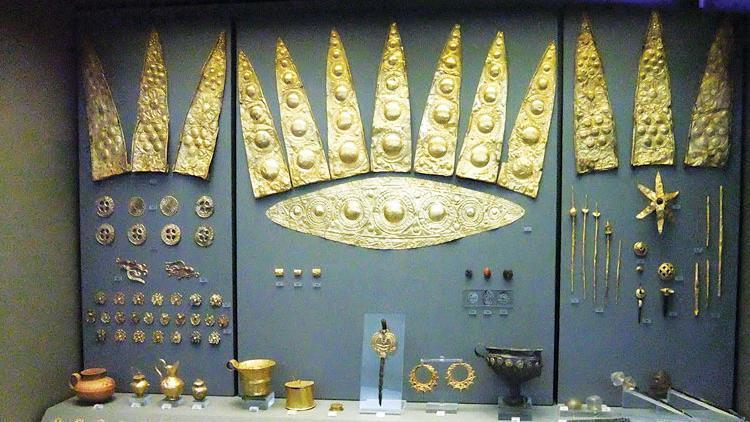
The number of artifacts unearthed in the ancient city of Troy and smuggled out of the country may be 10 times higher than previously estimated, according to a document recently found in the Ottoman archive.
Ali Sönmez, an associate professor in the history department at Çanakkale Onsekiz Mart University, has discovered a report, written by İzzeddin Efendi and dated May 3, 1884, that lists 73,139 artifacts that were stolen after archaeological excavations within the borders of Tevfikiye village in the northwestern province of Çanakkale.
“The document presents totally new information. İzzeddin Efendi, who had conducted an investigation [into smuggling], points out that the total value of the artifacts amounted to 15 million Ottoman liras. He describes the artifacts with every detail, indicating that he had a good grasp of the investigation,” Sönmez told daily Hürriyet on May 14.
“He makes descriptions such as: ‘Some of the aforementioned bracelets were hardened by hammer, others were made of wires. And some of them were inlaid filigrees.’ A substantial part of these artifacts are not in the museums now. They were either melted or included in collections of unrelated concepts,” Sönmez said.
Efendi, then-provincial chief customs officer, had spoken with other customs officers alongside workers who took part in the excavations, according to the report. He presented the report to the Education Ministry of the Ottoman Empire.
German archaeologist Heinrich Schliemann conducted the first archaeological study at the site, shedding light on a history of 5,000 years. He was later accused of smuggling the treasures abroad in 1873.
In his book “Ilios” published in 1881, Schliemann claimed that the total number of the smuggled artifacts was 8,833.
“Another piece was found in the Pforzheim Museum in Germany. Besides, a piece belonging to the treasures of Troy was auctioned in Switzerland. Some of them were given as bribes. He gave away some of them as gifts, while keeping some of them for himself. A majority of the pieces he mentioned in ‘Ilios’ are not in museums now,” said academic Göksel Sazcı, who authored a book on Troy artifacts.